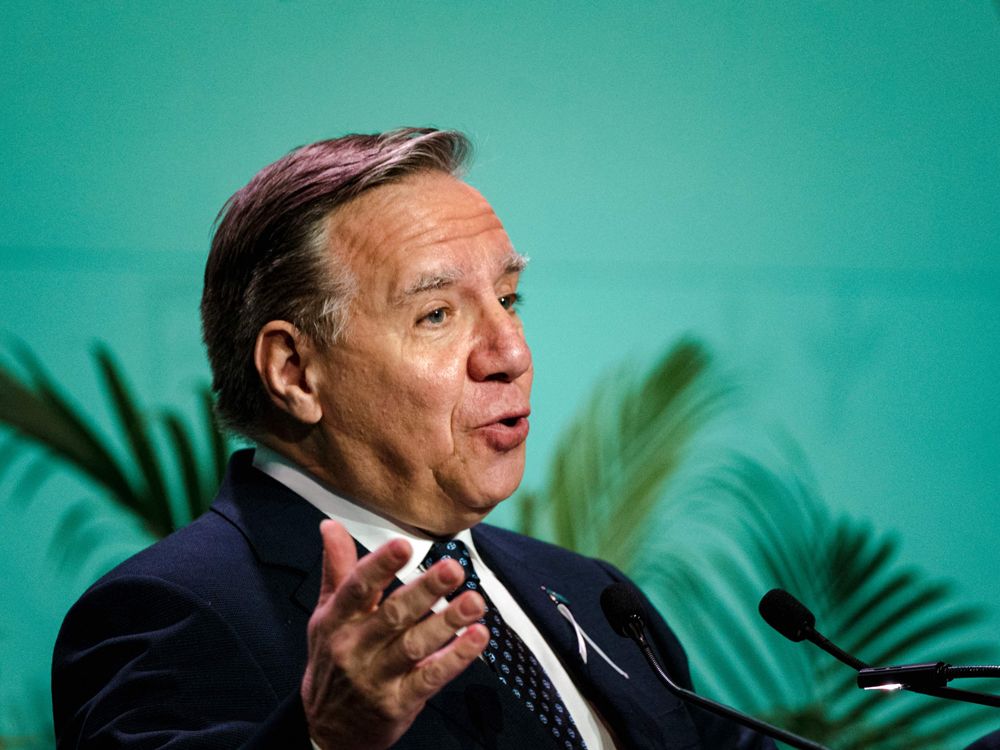Combined, it will cost some $13 billion over five years

Article content
Quebec pledged to spend more than $8 billion shielding seniors from inflation, making Premier François Legault that latest provincial leader to ignore warnings that additional government spending risks making price pressures worse.
Advertisement 2
Article content
“The significant increase in the cost of living is impacting the lives of Quebecers, particularly seniors and low–income individuals,” Finance Minister Eric Girard said in a press release that was published alongside his latest budget update on Dec. 8.
Article content
In March, Legault said all adults earning less than $100,000 a year would get a one-time payment of $500. Legault, who was re-elected in October with one of the biggest majorities in Quebec’s history, announced an additional $600 payment in early November. Combined, the government’s “Anti-Inflation Shield” will cost some $13 billion over five years.
Article content
Girard said he is simply redistributing the windfall the province collected from inflation’s effect on revenue.
Advertisement 3
Article content
The announcement took place against a backdrop of slowing economic growth and a surging cost of living in the province. Girard’s update predicted economic growth will decrease to 0.7 per cent in 2023 from 3.1 per cent this year.
Nonetheless, Girard said the government is well positioned to face the “economic uncertainty that is plaguing Québec and the global economy,” adding that the government plans to put aside $8 billion in the case of a recession.
Economists tend to be wary of these sorts of spending increases when demand is already strong, as budget deficits risk fuelling the “inflationary fire” that’s already burning. “From a policy perspective, we all know that sending out money as an inflation-support measure is inherently … inflationary,” Robert Kavcic, an economist at Bank of Montreal, said, in a note this week.
Advertisement 4
Article content
-

Bank of Canada has established its inflation fighting cred. Now it’s up to the numbers
-

Opening the door to a pause: What economists say about the Bank of Canada decision
-

Mortgage rates to soar higher after latest interest rate increase, but end of hiking cycle in sight
Yet the political pressure to offset higher costs is intense. The consumer price index, which the Bank of Canada uses to guide its rate policy, rose 6.9 per cent in October from a year earlier, according to Statistics Canada’s most recent report. The Bank of Canada increased interest rates by a half point this week, pushing the benchmark rate to 4.25 per cent, the highest since 2008, in a bid to cool demand.
Under Legault’s plan, the tax credit for seniors aged 70 and older will increase to a maximum of $2,000 from $411 currently, benefiting 1.1 million Quebecers.
Advertisement 5
Article content
The government also said that prices of some government products and services that are tied to inflation — including electricity rates and university tuition fees — will be capped at three per cent, a move that the government said equated to cost reductions worth $1.6 billion over five years.
Additionally, the personal income tax system and social assistance programs will be indexed at 6.44 per cent in 2023, ensuring benefits keep pace with increases in the cost of living, the government said. Girard valued that change at $2.3 billion per year.
• Email: mcoulton@postmedia.com | Twitter: marisacoulton


